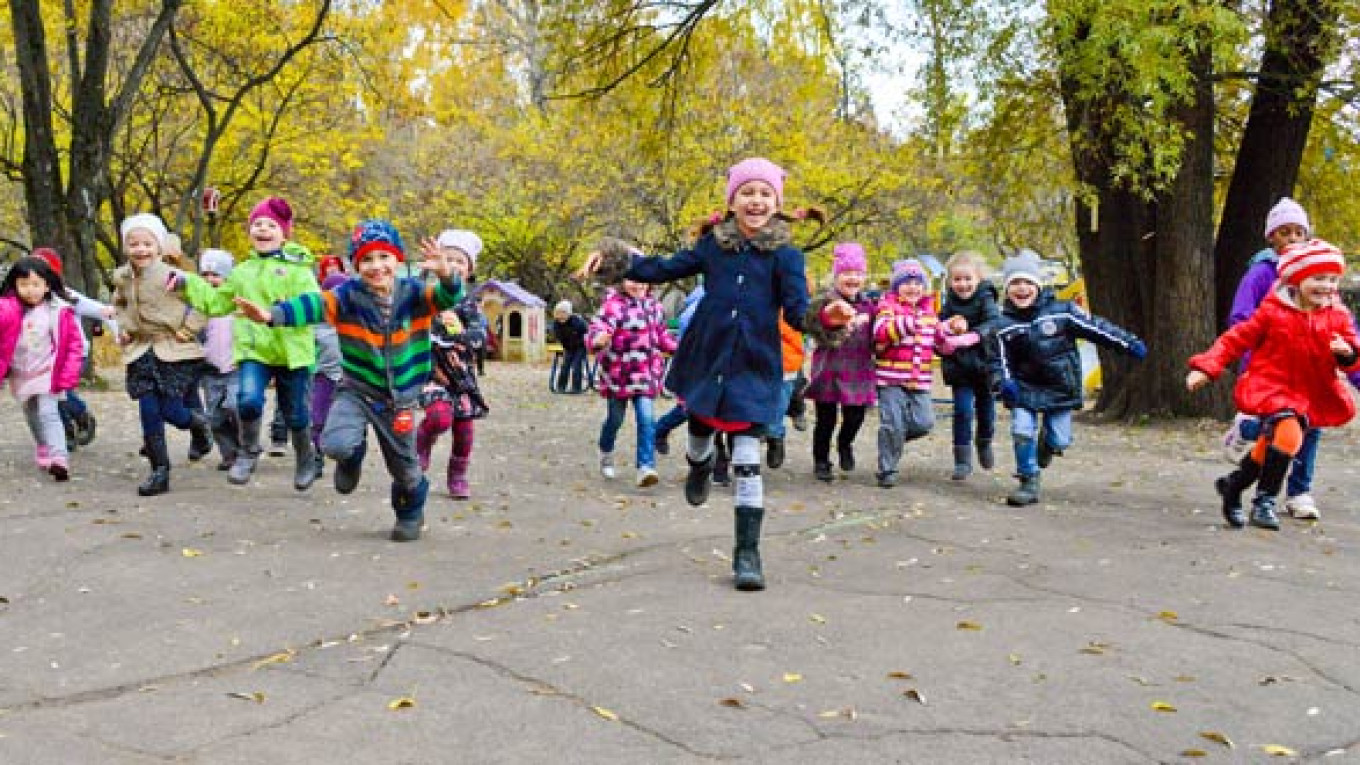Private education is a relatively new phenomenon in Russia. As the Soviet period drew to an end, more and more foreigners arrived to do business in Moscow at the same time that a few dedicated Russian pedagogues and parents wanted a different kind of education for their children. Slowly but surely, as legislation and economics allowed, private schools began to appear in the capital. At first, most schools were very small or only catered to preschoolers. But over the last two decades, the growing foreign community and the rise of the Russian middle and upper classes devoted to providing their children with the best quality education possible have created a vibrant community of private schools.
Now about 250 private schools in and around Moscow provide a variety of academic programs and approaches to education.
Some are still part of embassies and serve the national diplomatic and business communities. One of those, the Anglo-American School of Moscow, began as a very small endeavor. It was organized by the British and U.S. embassies in 1949 when the Soviet government suddenly banned foreign children from attending state schools. The student body in the first year of operation consisted of 11 students –—not even enough for two basketball teams. Today it is chartered by the U.S., Canadian and British embassies and educates more than 1,300 children of 60 nationalities in a well-equipped suburban campus. The curriculum is international, which means that children can graduate with a North American-style high school diploma or they can supplement it with International Baccalaureate certificates or full IB diploma. Graduates scatter around the world to continue their studies, the majority attending U.S. and Canadian colleges and universities, but significant numbers enrolling at British, European, Asian and Russian universities.
The British International Schools, or BIS, in Moscow also started small — with 100 children at one school — in 1994. BIS was founded by the educator Tatyana Anufriyeva, who saw the need for an English national curriculum school for the children of the increasing numbers of foreigners in the capital. Denis Kelly, executive headteacher, said the school and the English national curriculum are popular with families who travel around the world, since children can pick up where they left off in another city and country. But the school has become extremely popular with Russian families, too, in part because the curriculum is broad and balanced. And it provides education in English, at present the world's universal language. "Today kids do not stay in their own countries," Kelly said in a recent interview. "If they want to make a career, they have to travel. Parents want their children to graduate from school with fluent English and strong skills. Today we have kids from 70 nationalities and every continent on earth studying at our eight schools." Most years a full 100 percent of BIS graduates go on to universities, the majority in Britain.
The European Gymnasium was founded by another passionate educator, Irina Bogansteva, more than 20 years ago. Bogansteva says that the school aims "to provide children with the ability to think critically. We want to educate a child not to just be a citizen of Russia, but a citizen of the world." This is not, in her view, at odds with Russian educational and cultural traditions. To the contrary, she sees this as part of it. "Russia is a European country and Moscow is a European capital. The basis of our culture is not Buddhism, Daoism, or Confucianism — it is Christianity, the basis of European culture."
The largely Russian student body at the European Gymnasium has the option of graduating with an International Baccalaureate, a Russian diploma, or both — although teachers caution that the last option is quite difficult.
All these schools try to provide what parents want most: confidence that their children can continue their education at home or abroad and will be prepared for a rapidly changing workplace. As Irina Bogantseva said, "The world will change by the time our students enter the work force. They will live in a different world. We are working to prepare them not for tomorrow, but for the day after tomorrow."
See also:
The Right School for Every Child
Contact the author at m.berdy@imedia.ru
A Message from The Moscow Times:
Dear readers,
We are facing unprecedented challenges. Russia's Prosecutor General's Office has designated The Moscow Times as an "undesirable" organization, criminalizing our work and putting our staff at risk of prosecution. This follows our earlier unjust labeling as a "foreign agent."
These actions are direct attempts to silence independent journalism in Russia. The authorities claim our work "discredits the decisions of the Russian leadership." We see things differently: we strive to provide accurate, unbiased reporting on Russia.
We, the journalists of The Moscow Times, refuse to be silenced. But to continue our work, we need your help.
Your support, no matter how small, makes a world of difference. If you can, please support us monthly starting from just $2. It's quick to set up, and every contribution makes a significant impact.
By supporting The Moscow Times, you're defending open, independent journalism in the face of repression. Thank you for standing with us.
Remind me later.


